Rachel Leigh Cook
The Myth of the Ugly Duckling

Last year I wrote a blog post detailing my biggest television pet peeves because TV shows are filled with conventions that are used and reused until they drive their audiences nuts. Repetition is part of popular culture. There’s even an entire website devoted to annoying, overused TV tropes. Sure, we must accept the easy shorthand of the TV trope if we are going to watch TV, but ever since I started seeing ads for Zooey Deschanel’s new comedy, New Girl , I’ve been thinking a lot about one particular trope that I’ve always hated. It goes by many names, but for the purposes of this post, let’s call it “the myth of the ugly duckling.” You all read “The Ugly Duckling” when you were a kid, right? First published in 1843 (thanks Wikipedia!), Hans Christian Andersen’s famous story is about an unattractive baby duck who is abused by all who meet him until finally, one glorious day, he realizes that he is actually a beautiful swan! Here’s how Andersen’s story concludes:
He had been persecuted and despised for his ugliness, and now he heard them say he was the most beautiful of all the birds. Even the elder-tree bent down its bows into the water before him, and the sun shone warm and bright. Then he rustled his feathers, curved his slender neck, and cried joyfully, from the depths of his heart, “I never dreamed of such happiness as this, while I was an ugly duckling.”
The lessons in this classic tale are clear: If people bully you based on something you cannot control, such as the fact that you are “ugly,” don’t worry. Eventually, you will be accepted by a group of much better looking people. These people will embrace you and love you based on something else you cannot control, the fact that you are now “beautiful” and look just like them. Good for you, little duck!
 Obviously, this message of “beauty as transcendence” is problematic and highly damaging to the psyches of young children and insecure adults alike. But that’s not why I dislike the myth of the ugly duckling. I dislike it, and its many iterations in popular culture, because the ugly duckling is not “ugly.” I mean, have you seen a baby duck (or a baby swan) before? Let me refresh your memory:
Obviously, this message of “beauty as transcendence” is problematic and highly damaging to the psyches of young children and insecure adults alike. But that’s not why I dislike the myth of the ugly duckling. I dislike it, and its many iterations in popular culture, because the ugly duckling is not “ugly.” I mean, have you seen a baby duck (or a baby swan) before? Let me refresh your memory:


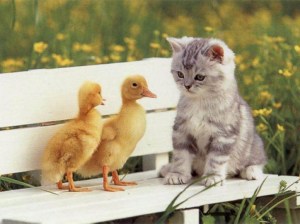
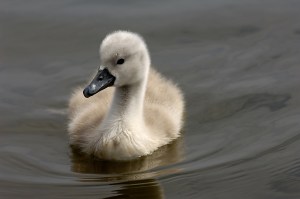
And that’s pretty much the problem I have with the myth of the ugly duckling when it is translated into a film or TV show. It’s simply untrue. Don’t tell me someone is ugly when they are so clearly NOT ugly. My first exposure to this myth, as applied to women, occurred when I was about 6-years-old and watching my favorite channel, MTV:
Thank goodness “Goody Two Shoes” was in heavy rotation in 1982; it communicates so many important lessons about beauty, sexuality, and male-female relationships. The most important lesson Mr. Ant taught me is that women who wear suits, buns, and glasses are highly unattractive. Even when they are so clearly hot. This was upsetting to me because at the time I wore a large pair of glasses, quite similar to the pair worn by the woman featured in the video, and I often wore my hair pulled back. Also, I did not drink or smoke. “Shit,” my 6-year-old self noted, “I’m ugly!”
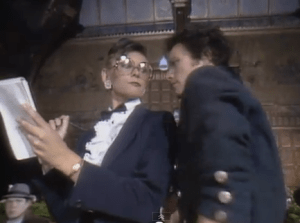
But not to worry. According to this video, it is easy to capture the attention of the wily Adam Ant. All you need to do is shake your bun out and remove those giant glases. Viola! Ant Ant is totally going to screw your brains out in that hotel room while his horny butler watches through the keyhole. I should also note this video’s plot, about an uptight looking woman who appears to be interviewing Adam Ant, and then decides to let her hair down (literally) and make sweet love to the rockstar, has very little to do with the song’s lyrics. The lyrics themselves (you can read them here), seem to be a critique of image and stardom and of the very transformation the woman makes. But my 6-year-old self was not listening to the lyrics. I was watching the video. And taking copious mental notes.
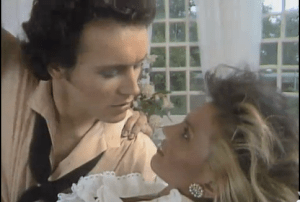
Fast forward a few years to one of my all-time favorite films, The Breakfast Club (1985, John Hughes). I did not see this film in the theater, but by the time I was in junior high it seemed to be playing on TBS every single Saturday afternoon. Like most kids of my generation, everything I thought I knew about being a teenager came from this film (or some other John Hughes film). Some of the film’s many lessons include: bad boys are sexy, girls who don’t like to make out are prudes, Claire is a “fat girl’s name,” detention is wicked awesome, and, most importantly, if you want cute boys like Emilio Estevez to think you are pretty, stop being so weird and interesting and let the popular girl give you a make over. Ally Sheedy, I am talking to you.
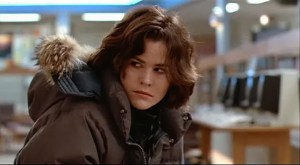
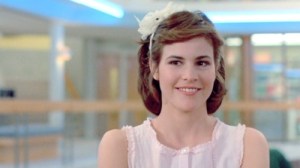
Even as an insecure preteen I noted with dismay that the pre-makeover Allison was actually very, very pretty. After all, she’s played by Ally Sheedy! Ally Sheedy is a fox! Her “make over” doesn’t alter her appearance in any kind of radical way, much as the removal of a bun and glasses doesn’t change much about the goody two shoes in the Adam Ant video. Both of these women were beautiful from the start and the only people who insisted on their physical unattractiveness were the creators of these texts. In other words, almost every ugly duckling I have encountered, dating all the way back to Hans Christian Andersen’s tale, have never truly been “ugly.” Their ugliness is an artifice I have been asked to believe so that the beautiful, swanlike transformation that inevitably follows can happen. Time and again, beautiful women are cast in the role of the “awkward,” “drab,” “dorky,” or “ugly” girl. And all it takes to make them “ugly” is a pair of glasses, a disinterest in fashion, or a quirky hobby.
At this point you might be thinking: so what? Who cares if film and TV audiences are repeatedly asked to view highly attractive women as “ugly”? I guess my problem with all of this is that in these films and television shows I am told, over and over, that certain key signifiers make attractive women into unattractive or undesirable women. These signifiers include but are not limited to:
Being a tomboy and an awesome drummer:

Being poor:

Being Aaron Spelling’s daughter:
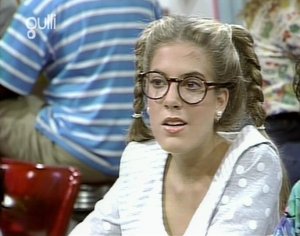
Wanting to be an artist:

Having musical talent that far outstrips that of your peers:
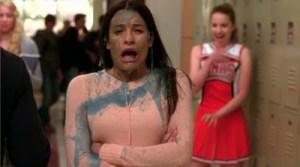
Being smart and wearing glasses:
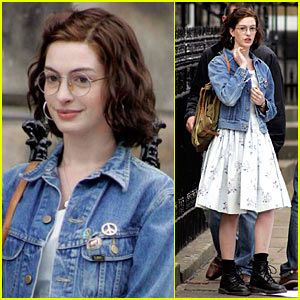
In every case, the decision to be studious or artistic or slightly different from everyone else transforms a woman who would normally have more suitors than an alley cat in heat into a lonely spinster. So the message is: ugly women are screwed. And pretty women who value something other than being pretty are screwed. And if you are ugly and you like to read? Well, start collecting cats and Hummel figurines now because you have a lonely life ahead of you, spinster.
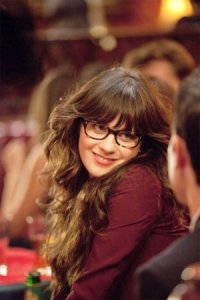
And that is why I could not bring myself to watch the premiere of New Girl. I just could not stand the way that Zooey Deschanel’s character, Jess, was repeatedly described as being “dorky” and “awkward” in press releases and in early reviews. I don’t care how big her glasses are or how often she bursts into song at inopportune times. Zooey Deschanel is not a “dork.” She’s hot. Can a woman who is that beautiful really and truly be a “dork”?Now I’m not saying that hot chicks don’t get dumped, as Deschanel’s character does in the show’s premiere. And I’m not saying that hot chicks don’t find themselves feeling awkward or acting the fool. I am sure they do. But it’s hard to buy a woman like Zooey Deschanel as a true awkward dork. You know who plays good dorks? Kristen Wiig. Someone else? Charlyne Yi. I believe her.

Just not another hot chick in glasses.
It’s time for film and TV to get a new trope. Make a character a social outcast because she’s a bully or because she’s too judgmental. Not because she wears glasses or reads books or carries a big purse. After all, you need a big purse to carry all those books. And you need glasses to read those books. Just sayin.